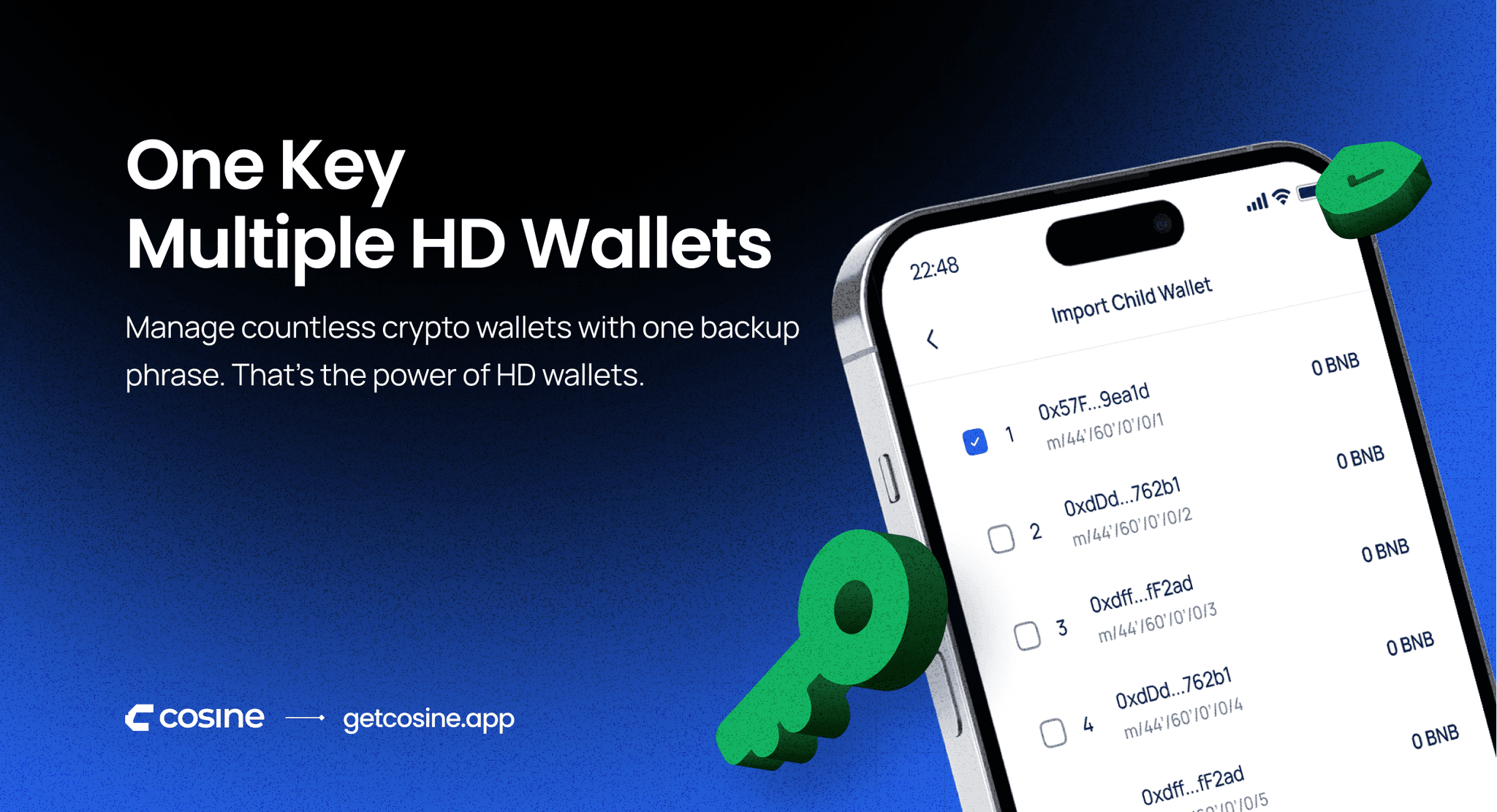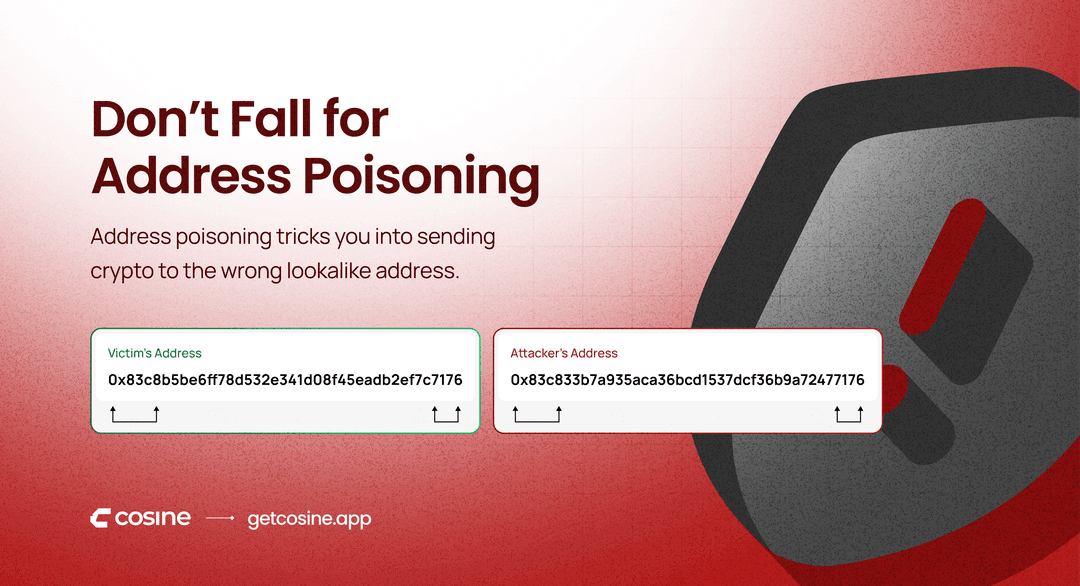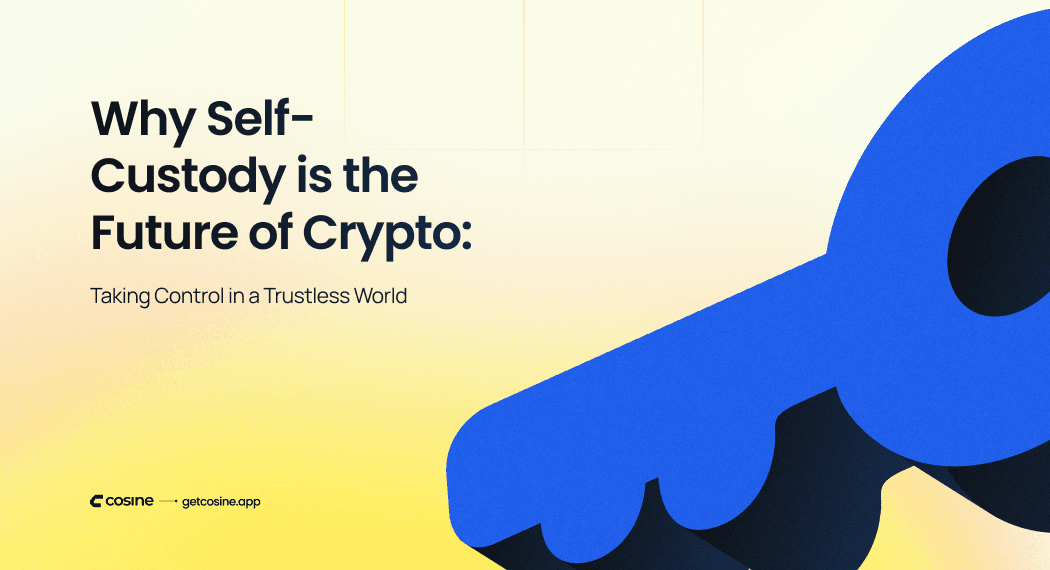HD Wallets: The Smarter Way to Manage Multiple Wallets with One Backup
Manage multiple crypto addresses with one seed phrase. HD wallets offer better privacy, security, and scalability.
By Obafunso Ridwan, Joseph Samuel, Akin Ebenezer
July 20, 2025


In the world of crypto, security and simplicity don’t always go hand in hand. You want to keep your funds safe, maintain your privacy, and organize your assets but doing all that usually means juggling multiple wallets, backup phrases, and addresses.
That’s where HD wallets (short for Hierarchical Deterministic wallets) come in. They’re built to give you full control, without the chaos. Whether you’re a casual user managing a few tokens or a developer building a crypto product at scale, HD wallets are one of the most powerful tools in your wallet stack and they’re often misunderstood or underused.
Let’s break it down.
What’s an HD Wallet?
An HD wallet is a type of crypto wallet that uses a single seed phrase to generate a tree of wallet addresses, known as child wallets. These addresses are mathematically linked to the original, or master wallet, and can be created on demand.
Think of it like a family tree. The master wallet is the root, and every child wallet is a branch. You can generate as many branches as you like without needing a new seed phrase every time.
This means you no longer need to create and back up separate wallets for different use cases. Everything is derived from one master phrase.
How HD Wallets Work
When you first set up an HD wallet, it gives you a master seed phrase. Using deterministic algorithms (as defined in BIP44 standards), your wallet can generate multiple addresses, all tied to that one phrase.
These child addresses can be used independently for different things:
- One address for receiving crypto from a friend
- One for daily spending
- One for your NFTs
- One for long-term savings
- Another just for airdrops or farming
All of these addresses live under the hood of your HD wallet. And if you lose your device? No problem, restore them all with your seed phrase.
Why HD Wallets Are a Big Deal
Most users don’t realize how many headaches HD wallets quietly solve. If you're still copying and pasting wallet addresses into spreadsheets, or creating multiple wallet addresses just to keep things organized, HD wallets are about to make your life a lot easier.
Here’s why they matter:
One Seed Phrase to Back Up
No matter how many addresses you create, they all trace back to a single master seed phrase. That means:
- Only one thing to store safely
- Only one phrase to recover, even if you lose access to your wallet
- No more stressing over multiple backups
Lose your phone or laptop? Just enter your seed phrase in a new wallet app and get access to every address, every token, every NFT.
More Privacy
Using the same address over and over makes it easy for someone to track your activity on-chain. With an HD wallet, you can generate a new address for each transaction, helping you stay more anonymous and harder to trace.
This is especially useful for:
- Freelancers receiving crypto from multiple clients
- Merchants separating payments
- Users trying to maintain on-chain privacy
Better Organization
One of the best things about HD wallets is how easily they let you separate funds by purpose without creating new seed phrases.
Perfect for Growth
As your crypto activity grows, whether you're just stacking crypto or building the next DeFi app, you need a wallet system that scales with you.
HD wallets are:
- Scalable
- Efficient
- Easy to back up
- Dev-friendly (especially when building apps that need multiple derived addresses)
If you're a developer, this also means you can generate wallets for users on the fly, using their seed or private key, without storing multiple secrets.
Real-Life Example: How Cosine Labs Built HD Architecture In
At Cosine Labs, we embraced HD architecture from day one. We call them Child Wallets, and they’re deeply integrated into the design of our self-custody wallet.
Here's what that means for users:
- You can create and switch between multiple wallets effortlessly
- Your seed phrase stays secure, no need to manage multiple backups
- Everything is organized in one seamless interface
- You can use different wallets for different use cases (e.g card funding, NFT collections, bill payments)
Whether you're a casual holder or managing serious funds across blockchains, Cosine Wallet’s HD setup ensures you stay in control without getting overwhelmed.
Final Thoughts
Crypto should be secure and simple but too often, wallets force us to pick one. HD wallets give us the best of both worlds.
By leveraging a single seed phrase, you unlock a powerful tree of wallets that can grow with your needs. You get better privacy, better organization, and peace of mind knowing you only have one thing to back up.
Whether you’re just getting started or building the future of finance, HD wallets are the standard you should build on.
TL;DR
- HD wallet uses one seed phrase to generate a tree of addresses (child wallets)
- No need to back up multiple wallets—just one seed recovers everything
- Improves privacy and organization by allowing different addresses for different use cases
- Perfect for casual users, advanced traders, and developers alike
- Cosine Wallet supports full HD wallet architecture, making it easier than ever to manage your crypto life
Need a wallet that supports HD architecture and multiple child wallets out of the box? Check out Cosine Wallet and take control of your crypto with clarity.
Share Article
Related Article

Defi
Address Poisoning in Crypto: What It Is, How It Works, and How to Stay Safe on L2 Networks
July 02, 2025
Obafunso Ridwan, +2

Defi
Why Self-Custody is the Future of Crypto: Taking Control in a Trustless World
May 12, 2025
Obafunso Ridwan, +2